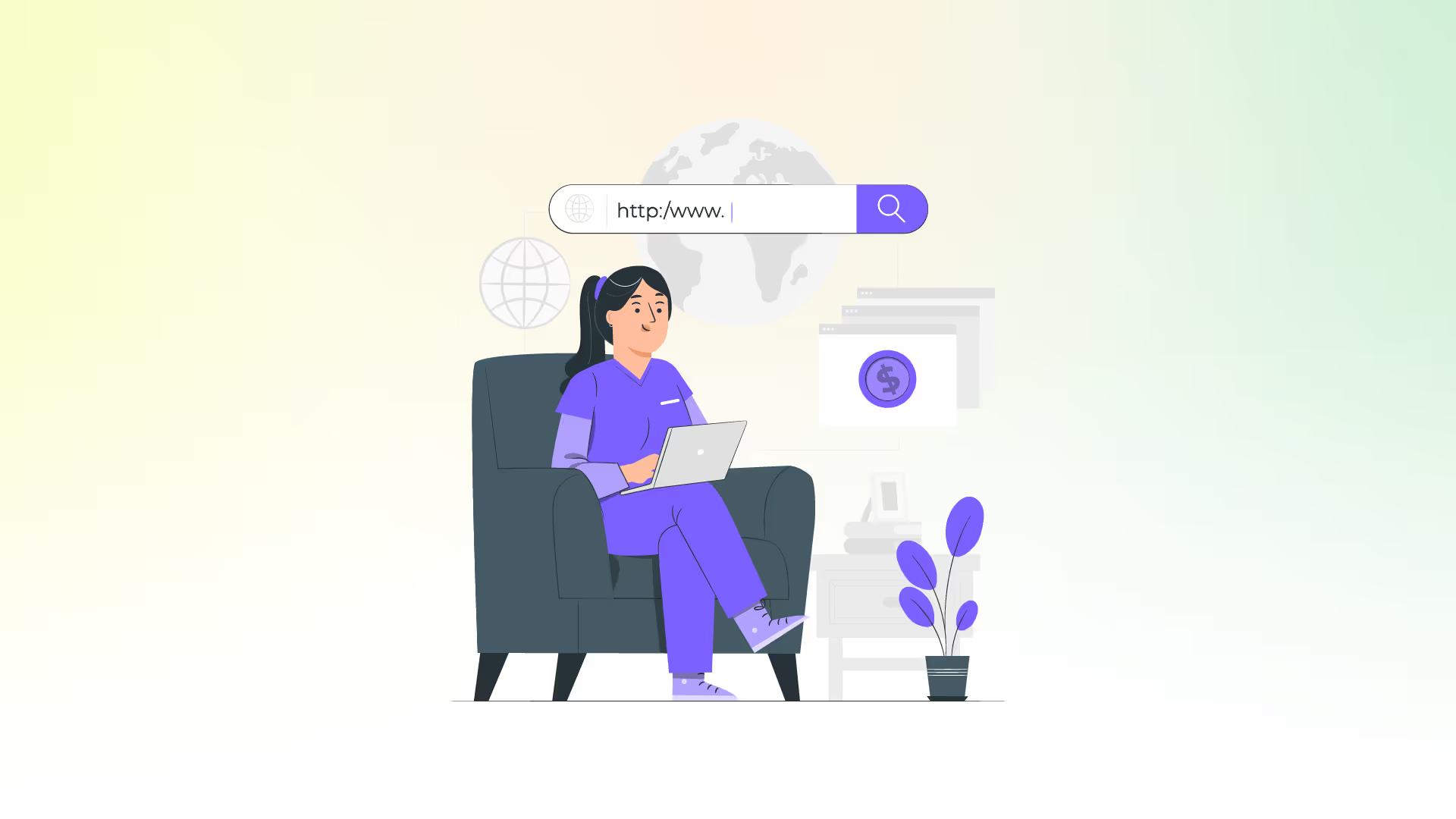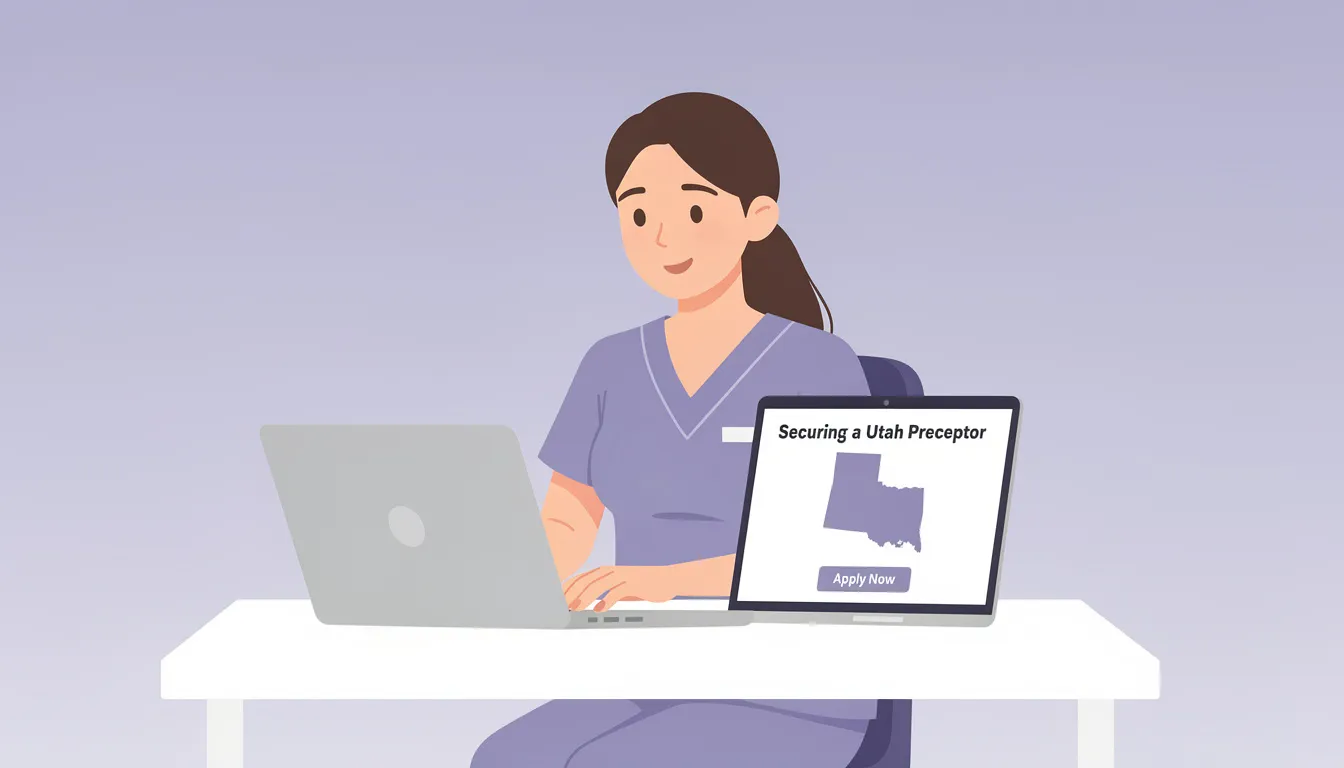Have you ever thought about how much your experience could mean to a future NP student?
You’ve spent years building your skills as a nurse practitioner, mastering your clinical expertise, and navigating the complexities of patient care and becoming a preceptor could be the next step in your career.
Preceptorship it’s a chance to make a real difference in someone’s journey, all while earning extra income and enriching your career. There are more ways than ever to find paid preceptor opportunities that fit your schedule and your goals. Specialties available for preceptorships include acute care, among many others.
In this guide, we’ll walk you through the best places to find paid NP preceptor roles, how to stand out as an ideal candidate, and what you need to know before diving in. Clinical rotations are crucial in the educational process for nurse practitioner students, providing supportive and educational environments.
Whether you’re looking to give back to the profession, supplement your income, or just try something new, this could be the perfect next step in your career.
Let’s get started!
Understanding the demand for NP preceptors in clinical rotations
The demand for nurse practitioner preceptors has never been higher. With NP programs growing rapidly, the number of students seeking clinical placements far outpaces the availability of qualified preceptors.
These placements are not optional, they’re required for graduation and this puts immense pressure on students to find preceptors while schools often provide little support.
As an experienced NP, your expertise is invaluable to these students. By stepping into a preceptor role, you’re not only shaping the next generation of NPs but also filling a critical gap in the profession.
It’s no secret that finding preceptors is a major challenge for NP students, and this demand directly impacts your opportunity as a potential preceptor.
NP students can leverage their network, including healthcare professionals, to find preceptors. Here’s why preceptors are so sought-after:
- Shortage of preceptors: There aren’t enough preceptors to meet the growing student population.
- Burnout among current preceptors: Many NPs are hesitant to take on students due to past negative experiences or concerns about time management.
- Limited school resources: NP programs often lack the infrastructure to actively connect students with preceptors, leaving both parties to navigate the process alone.
Constructive feedback is an essential part of the mentorship process, enabling students to identify areas for growth while also acknowledging their strengths, thus fostering a supportive learning environment.
This growing need for preceptors creates opportunities for NPs like you to step in—not just as a mentor, but as a professional who is fairly compensated for their time and expertise.
Many preceptors take on students voluntarily, but it’s becoming increasingly common for organizations, schools, and placement agencies to offer paid opportunities. Here’s why:
- Compensation recognizes the time, effort, and responsibility that come with mentoring.
- Paid opportunities often include more structured support, making the experience smoother for both you and the student.
- Earning extra income while giving back to the profession adds a layer of personal and financial fulfillment.
The next step is knowing where to look—and that’s exactly what we’ll cover next.
Top places to find paid NP preceptor roles
So, are you ready to share your expertise, mentor the next generation, and get paid for it? There are plenty of opportunities out there, including preceptor matching services.
The challenge? Knowing where to look and how to navigate the options without wasting your time. Let’s break it down into the best places to find these roles and how to approach each one.
A fulfilling clinical experience is crucial for both preceptors and students. Personalized matching processes ensure a supportive learning environment that integrates the students' specific needs and clinical goals into their training.
1. Clinical placement agencies: where the work is done for you
Imagine this: you want to mentor students, but you don’t want to deal with the back-and-forth emails, endless paperwork, or wondering whether you’ll actually get paid. That’s where clinical placement agencies come in. T
hey connect you with NP students who need preceptors, help you find NP preceptors, and handle all the logistical headaches.
For example, NPHub does everything from screening students to making sure you get paid on time. You’re free to focus on what you do best—precepting and sharing your clinical expertise. Plus, you’re matched with students based on your specialty, so you’re not juggling tasks outside your comfort zone.
- You sign up, list your availability and specialties, and wait for matches.
- The agency facilitates communication with the student and ensures all requirements are met.
- Payment? Guaranteed. No awkward negotiations.
It’s a no-brainer if you’re looking for a straightforward way to step into the role of a paid preceptor.
2. Hospitals and Healthcare systems
You might not realize it, but your current workplace could be a goldmine for preceptor opportunities. Many hospitals partner with local universities to host NP students, and some even offer stipends to preceptors.
Start by checking with your hospital’s education or professional development department. Ask if they’re working with any NP programs or if they’re open to starting. Hospitals are often eager to build relationships with schools, especially if it helps them recruit future employees.
Following evidence-based practice guidelines in these partnerships can enhance the educational experience for nursing students and improve patient outcomes in various clinical settings.
And here’s the insider tip: if your hospital doesn’t already have a preceptor program, you can suggest one. Highlight the benefits, like strengthening ties with the community and creating a pipeline of skilled NPs ready to join the team. You’d be surprised how receptive leadership can be when they see the long-term payoff.
3. Universities and NP programs
When nurse practitioner students are scrambling to find preceptors, their schools are just as desperate. While many rely on unpaid preceptors, more and more programs are starting to offer stipends to attract experienced mentors like you.
Reach out directly to NP programs in your area. A quick email to the clinical placement coordinator can open the door to opportunities. Better yet, attending events like alumni meetups or school-hosted networking nights can help you build a connection that lasts.
Once you’re on a school’s radar, you’re more likely to be called for future placements, creating a steady stream of opportunities.
4. Online platforms
If you’re into convenience, online preceptor platforms are like matchmaking apps for NPs and students. You set up a profile, list your availability, and wait for students to reach out. These platforms can also connect preceptors with students interested in primary care.
Platforms like PreceptorLink and ENP Network are popular options. They connect you with students while ensuring you’re compensated for your time.
The key is to optimize your profile. Include details about your specialties, clinical experience, and even your mentoring philosophy. The more personalized and approachable you seem, the more likely students are to reach out.
The biggest perk? Flexibility. You choose when and how often you want to take on students.
5. Professional organizations
Let’s not forget about the power of networking. Joining organizations like the American Association of Nurse Practitioners (AANP) or your state NP association can connect you to a wealth of opportunities.
These groups often have dedicated forums or job boards where schools and agencies post preceptor requests, including specialties like family medicine. And if you attend a conference, don’t be shy, schools and placement agencies frequently recruit preceptors on-site.
Family practice plays a crucial role in providing comprehensive patient care, offering clinical rotation opportunities in outpatient settings that cater to a wide range of patient ages, from newborns to geriatrics.
Here’s why this works: networking isn’t just about finding a job. It’s about becoming part of a community. When people know your name, you’ll naturally become their go-to person for opportunities.
Benefits of being a preceptor
You’ve thought about becoming a preceptor, but maybe you’re unsure if it’s worth the effort. The truth? It’s one of the most rewarding opportunities you’ll ever take on as a nurse practitioner. Let’s dive into five reasons why this role could be the perfect fit for you.
Preceptors can have a significant impact in various specialties, including women's health, by providing hands-on experience and mentorship to students during their clinical rotations.
1. Earn extra income without taking on extra shifts
We all know how exhausting extra shifts can be. Late nights, weekends, overtime—it adds up, and not in a good way. But as a preceptor, you can earn supplemental income without overextending yourself. You’re already doing the work in your day-to-day practice; adding a student to your routine simply means teaching them as you go.
And here’s the best part: you’re being compensated for your time and expertise. Agencies, schools, and programs understand the value of what you bring to the table, and they’re willing to pay for it. It’s a win-win—you help a student learn, and you get paid for something you’re already great at.
2. Make a lasting impact on the NP profession
Think about how you got to where you are today. Chances are, someone mentored you, guided you, and helped you navigate those challenging first steps in clinical practice. Becoming a preceptor is your chance to pay that forward.
You’re not just teaching skills—you’re shaping how a future NP approaches patient care, handles stress, and carries themselves in the field. That impact ripples far beyond the student you mentor. Every patient they’ll care for, every life they’ll touch, is influenced by the time you invest.
3. Strengthen your own clinical skills
Teaching is one of the best ways to sharpen your expertise. When you have a student asking questions, observing your decision-making, and relying on your knowledge, it pushes you to be at the top of your game. You might even find yourself revisiting skills or concepts you haven’t thought about in a while, which can make you an even stronger clinician.
And let’s be honest—students have a way of challenging us in the best possible way. They bring fresh perspectives, ask questions that make us think, and remind us of the “why” behind what we do every day.
4. Build your professional network
Becoming a preceptor isn’t just about the students—it’s also an opportunity to connect with schools, agencies, and other professionals. When you step into this role, you’re positioning yourself as a leader in your field. Schools remember great preceptors and often come back to them for future opportunities.
Plus, the relationships you build can open doors to other professional benefits, like referrals, speaking engagements, or leadership roles in your workplace. The connections you make as a preceptor can elevate your career in ways you might not expect.
5. Experience personal fulfillment
There’s something deeply rewarding about watching a student grow under your guidance. Seeing their confidence build, their skills improve, and their excitement for the profession reignite your own passion for what you do.
It’s not just about teaching them clinical skills—it’s about mentoring them through the highs and lows of the journey. The gratitude and appreciation from a student who genuinely values your time and knowledge? That’s priceless.
Every challenge you face as a preceptor comes with its own set of rewards. The key is recognizing these obstacles not as roadblocks, but as opportunities to grow—as a mentor, a clinician, and a leader. When you manage these hurdles with intention, you’ll not only help shape the next generation of NPs but also find deeper meaning and fulfillment in your work.
Your impact starts here
Being a preceptor isn’t just about teaching—it’s about inspiring. It’s about being the mentor you once needed, guiding students through the complexities of this profession, and showing them what’s possible when knowledge meets compassion.
The challenges you might face are real, but the rewards are worth it. From the gratitude of students to the ripple effect of the skills you’ve passed on, your impact as a preceptor will extend far beyond the clinic walls.
If you’re ready to take the leap but aren’t sure where to start, NPHub can help. We specialize in connecting experienced NPs like you with pre-vetted students who are eager to learn.
We handle all the logistics—matching, paperwork, and guaranteed compensation—so you can focus on what really matters: mentoring.
Whether you’re motivated by extra income, a desire to give back, or simply a chance to try something new, there’s no better time to get started.
Join the hundreds of NPs who’ve partnered with NPHub to shape the future of the profession while earning for their expertise.
Find a preceptor who cares with NPHub
Book a rotation.webp)








.webp)


.webp)



%20(3)%20(2).svg)
.webp)